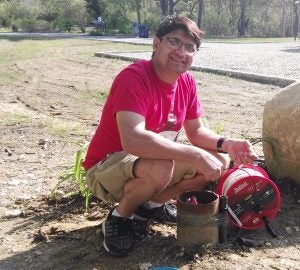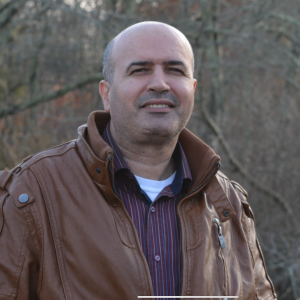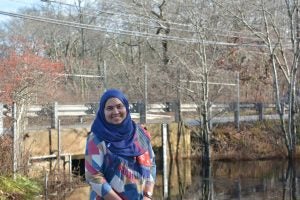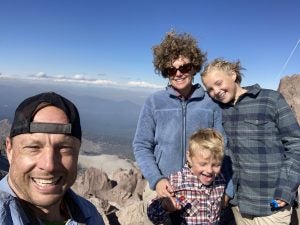
Shiva is an experienced research analyst in water, climate, and energy. His expertise has been in the understanding of water availability of the watershed system and its response to the precipitation extremes under a current and changing climate. The development of a realistic hydrological model in a data-scarce environment is a challenge and understanding the behavior of a watershed system under potential future anthropogenic stresses is of utmost importance as only with vulnerability assessment of a system, adaptation pathways may be figured out. His current research interest is policy implication research related to hydrology and biogeochemistry through a scientific understanding of anthropogenic interactions with watershed and related infrastructures. This shall help increase the knowledge and capacity required to build robust water infrastructures which is the foundation of sustainable development.
Previous Education:
Water engineering professional with a Master of Science in Civil Engineering focused in Water Resources Engineering. Skilled in AutoCAD, Arc GIS, SWAT, HEC-RAS, HEC-HMS, MATLAB, FORTRAN, R, and Python.

Jeeban Panthi received his MSc in Environmental Science from Tribhuvan University, Kathmandu, Nepal in 2011. He worked at a research organization – The Small Earth Nepal- for 6 years as a Research Coordinator. He got opportunities to work on multiple aspects of the environment focusing on climate and water, and their interconnections. Recognizing his research activities in Nepal, United Nations Environment Program (UNEP) provided him PROVIA Young Research Fellowship in 2016, he worked on climate change and water quality under the fellowship program. His interest is to evaluate the climatic and non-climatic stresses of water resources and identify practical solutions to mitigate the impacts. In his Ph.D. research, Jeeban is working on saltwater intrusion to groundwater aquifers taking the coastal area of Rhode Island as a case study. Jeeban loves to travel, hike, and make connections with people from diverse backgrounds.
Previous Education:
MSc in Environmental Science from Tribhuvan University, Kathmandu, Nepal

Mamoon is a Hydrogeologist, and Groundwater-Flow Modeler, has over ten years of experience in water resources management, groundwater data analysis, and private wells monitoring and metering, through his work at the Ministry of Water and Irrigation in Jordan and international agencies.
His research focuses on groundwater quality deterioration and salinization, applying geochemical mass-balance and isotopic composition in the Jordan Valley to identify the age and origin of water.
Currently, he is a Ph.D. student in the Department of Geosciences at URI, working on developing a saltwater intrusion model for South Coastal Basin in RI, where groundwater is the primary source of drinking water. Investigating the extent and impact of saltwater intrusion driven by natural and anthropogenic factors using SEAWAT (coupling of MODFLOW and MT3DMS) to model three-dimensional, variable-density groundwater flow and saltwater intrusion.
Previous education:
Master of of Science in Environmental Sciences, Yarmouk University
Thesis: “Hydrogeochemical Modeling of the Shallow Groundwater in the Northern Jordan Valley”
Bachelor of Science in Geology, Yarmouk University

Supria is a Ph.D. candidate in the Department of Civil and Environmental Engineering at URI. Having experience in hydrology and climate change research, she is now focused to improve the water supply and disaster management of the drinking supply in Rhode Island. She is currently working to develop a numerical model as well as a physical model of Scituate reservoir of Rhode Island to assess its capacity under extreme hydrologic scenarios like high flow and low flow. The Scituate Reservoir is one of the primary drinking water sources of Rhode Island. In an event like a flood, the reservoir experiences overspill and adverse effects on the water supply system and urban land area. Considering similar scenarios, Supria will aim to analyze the vulnerability and resilience of the reservoir.
Area of interest: Surface Hydrology, hydrologic and hydraulic modeling, Impact of climate change on water resources, water resources management.
Previous education:
Master of Science in Water Resources Development, Bangladesh University of Engineering and Technology (BUET), Dhaka-1000, Bangladesh, 2014
Master’s thesis: Impact of climate change on stream flow over Brahmaputra Basin using soil and water assessment tools (SWAT) hydrologic model.
Bachelor of Science in Water Resources Engineering, Bangladesh University of Engineering and Technology, 2011

Kyle Young is an active-duty officer in the U.S. Coast Guard and is currently serving as a physics instructor at the U.S. Coast Guard Academy (CGA). He received his bachelor’s degree and commission from CGA in 2002, and has served numerous operational tours in the Coast Guard, including as an engineer and diver on board a Coast Guard Polar Icebreaker, and as a Search and Rescue helicopter pilot and instructor pilot at Coast Guard Air Stations in San Francisco, CA and in Traverse City, MI. Kyle is a designated Coast Guard Aeronautical Engineer and holds FAA pilot certifications as a fixed-wing Commercial Pilot, a helicopter Airline Transport Pilot, and a Small Unmanned Aircraft System (SUAS) operator. His educational background includes a BS in Mechanical Engineering, an MS in Environmental Policy and Management, and an MS in Earth Sciences. Kyle enjoys spending time with his family, playing music, dancing with his wife, biking in all weather, and being outdoors.
